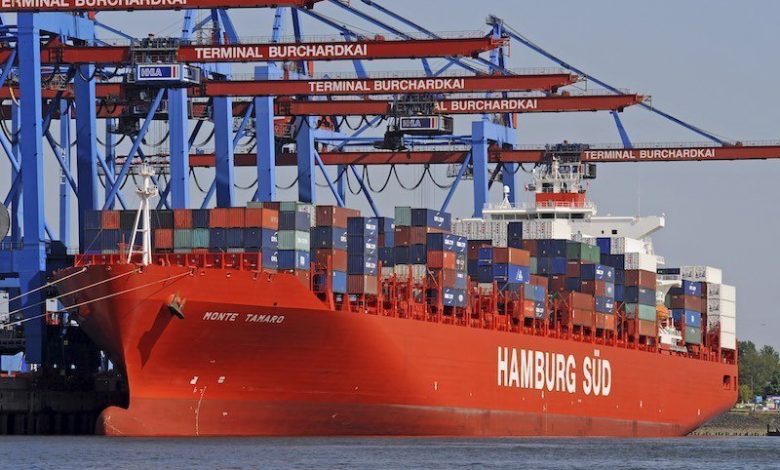UNCTAD flags oligopoly concerns amid unprecedented container shipping consolidation

The United Nations Conference on Trade and Development (UNCTAD) has issued its latest maritime report buried deep in which is a suggestion that could alarm senior liner executives.
Within UNCTAD’s Review of Maritime Transport 2017 there is a call to review container alliance regulations to give shippers greater choice amid the dramatic consolidation seen within the sector over the last couple of years.
There are risks associated with the recent mergers and mega alliances among container carriers, the report states.
“The risk is that growing market concentration in container shipping may lead to oligopolistic structures,” said Shamika Sirimanne, director of UNCTAD’s division on technology and logistics.
“In many developing countries’ markets, there are now only three or even fewer suppliers left,” Sirimanne continued. “Regulators will need to monitor developments in container shipping mergers and alliances to ensure there is competition in the market.”
Revisiting the rules governing consortiums and alliances may be necessary, the report states, in order to balance the interests of shippers, ports and carriers.
Factoring in the incoming merger of Japan’s big three boxlines, and Cosco’s takeover of OOCL, there will be just seven global liners by next year – the number of container shipping majors having more than halved this decade. On top of this, the number of container alliances on the main east-west trades has shrunk from four last year to just three as of April 1 this year.
Olaf Merk, the ports and shipping expert of the International Transport Forum at the OECD, noted on Twitter this July that with the Cosco takeover of OOCL the market share of the top four carriers would stand at 53.8%. Data compiled exclusively for Splash by Drewry Maritime Research shows the top four carriers two years ago only had a 40.7% global market share.
“The container shipping industry has ‘officially’ become an oligopoly,” Merk wrote.
James Hookham, deputy CEO of the UK’s Freight Transport Association and a director of the Global Shippers Forum, told Splash earlier this year: “The choice and quality of service available to Asian shippers is under threat from the convulsions that are transforming the container shipping sector.”
Hookham said the Global Shippers Forum was determined that these new structures are not used to “smuggle back discredited cartelising behaviour” into the market by shipping lines.
Authorities have over the years taken aim at container alliances. It was nine years ago almost to the day, for instance, when the the Far Eastern Freight Conference, which governed the Asia-Europe tradelane, was forced to close by the European Union after nearly 130 years in existence.
In March this year officials from the FBI and the Department of Justice Antitrust Division raided a Box Club meeting in San Francisco, delivering subpoenas to representatives of the major container shipping lines, ordering them to testify about industry practices. The Box Club is an informal name for the International Council of Containership Operators. It includes the CEOs of all the major containerlines and meets twice a year at varying locations. Splash understands the investigations are set to wrap up in the coming couple of weeks.
Elsewhere in the UNCTAD shipping report, there were predictions world seaborne trade will show an annual compound annual growth rate of 3.2% between 2017 and 2022.
“[T]he situation could improve relatively soon, if the industry can shed its excess weight,” UNCTAD stated.

It’s simply laughable to suggest that price collusion exists within the container sea transportation segment of logistics – completely unfounded and an illogical conclusion.
Outlawing alliances would simply accelerate M&A consolidation, actually resulting in less choice for shippers – or increasing the burden on tax-payers in jurisdictions where the government unjustifiably subsidise poorly run and managed ship operators.
If one considers the miniscule costs (and relative low environmental impact) of moving good in containers by sea to the end consumer – then there is probably a different tree to bark-up.
Illogical conclusion. In any market which is super fragmented, consolidation is an inevitable outcome…